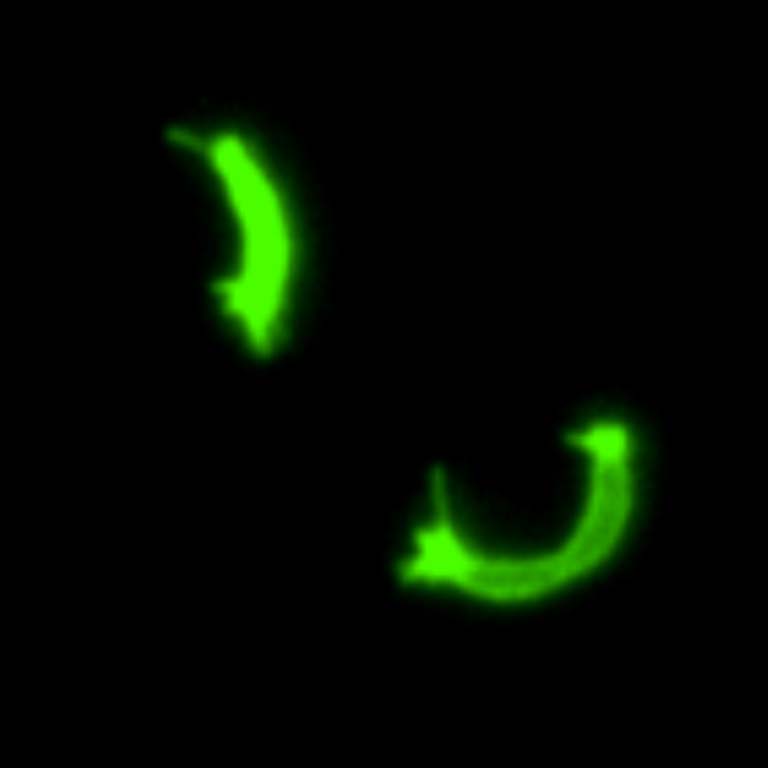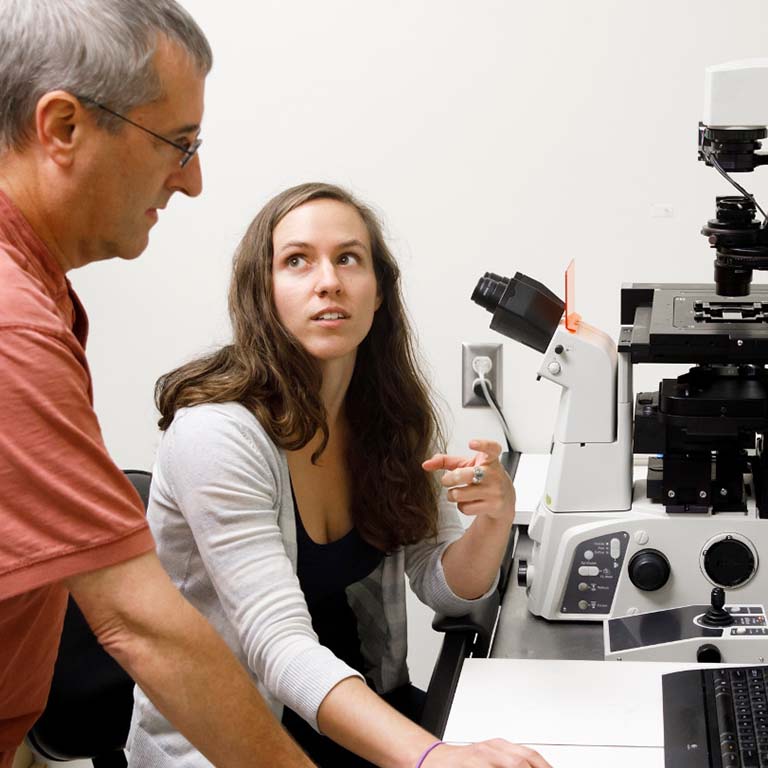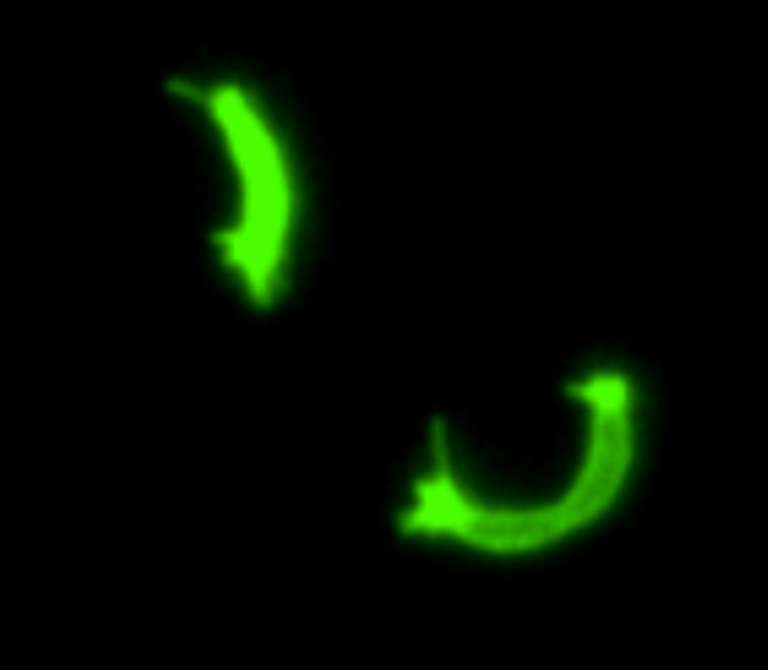Bacteria interact with surfaces in the environment to form multicellular colonies called biofilms. Biofilms are involved in biofouling and infections as well as increasing resistance to antibacterial agents. Some bacterial species sense surfaces and/or adhere to them using type IV pili (T4P)—dynamic appendages that extend and retract. Extension and retraction are essential for many bacterial species to carry out diverse behaviors such as surface sensing, virulence, biofilm formation, and DNA uptake leading to the acquisition of antibiotic resistance genes.
Last year Courtney Ellison, a Ph.D. student in the Indiana University College of Arts and Sciences’ Department of Biology at the time, rocked the scientific world when she became the first person to observe bacteria using their pili to snatch DNA from the environment in real time.



 The College of Arts
The College of Arts